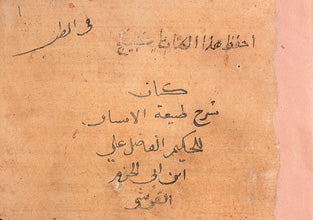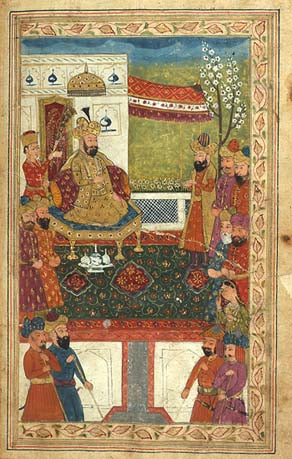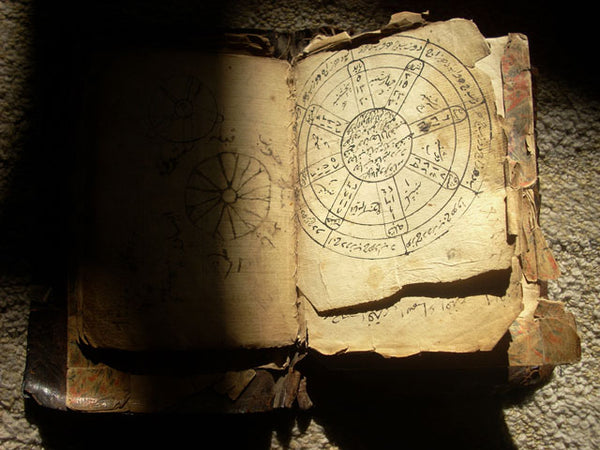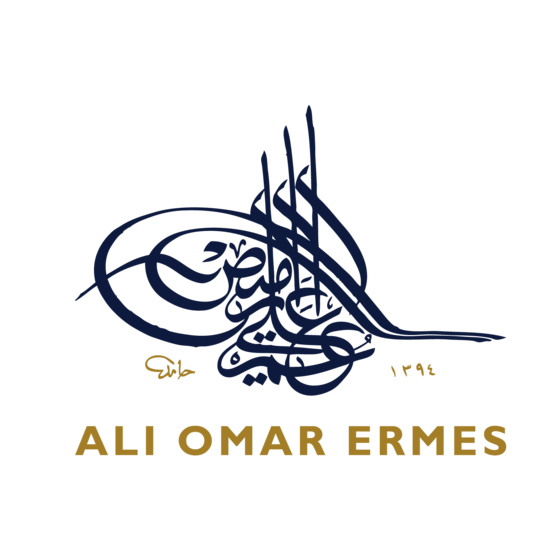Health Guidelines From Qur'an and Sunnah
Dr Shahid Athar, M.D, Thursday 22 March 2001
Shahid Athar M.D. is Clinical Associate Professor of Internal Medicine and Endocrinology, Indiana University School of Medicine Indianapolis, Indiana
This article is not about the glory of Islamic Medicine of past 1000 years which produced great physicians like al-Razi and Ibn-Sina. This article is also not about virtues of honey, the center point of discussion in most of the articles written these days on Islamic Medicine. This also is not an article saying that since science has now confirmed certain Quranic statements, therefore Quran must be a divine book. To the contrary, we begin with the belief that all Quranic statements are true, science has confirmed some of them in the past, and will confirm the rest in the future. If science has not confirmed it yet, it needs to examine its data more deeply, or may be repeat the experiment, rather than question the authenticity of Quran.
The Quran is not a book of medicine or of health sciences,but in it there are hints which lead to guidelines in health and diseases. Prophet Mohammed (P.B.U.H.) has set as an example to the mankind so his traditions in matters of health and personal hygienic are also a guide for his followers.
We start our discussion with the following verse:
“Everything good that happens to you (O Man) is from God, everything bad that happens to you is from your own actions”. 4:79
Therefore, the pathology (disease) is defined by the famous pathologist William Boyd as physiology (natural state) gone wrong. It is our tampering with natural process that leads to unnatural outcomes.
Human body can be compared to some degree with a machine created by man. The fascinating tape recorder has many mechanical and electronic parts but life does not come to it till electrical current is passed through. Similarly, in the components of human body there arc the anatomic parts and fluids but also the spirit (the soul). As the care of a machine requires keeping it clean, giving it some rest, and passing electricity of proper voltage, and using it carefully and wisely, so are the requirement for the body and of the body as whole.
Before we come to the physical care of human body, let us talk about the spiritual care.
The spiritual care involves the acts of worship. The problem is that Iman cannot be translated into belief, nor Salaat into prayer, Nor Wadu into washing hand, face and feet nor; Sawm into fasting nor Sakat into charity nor Haii into pilgrimage to Mecca. T’hey are entitles in themselves.
A. Iman: The belief in God is the first and foremost important need for spiritual stability. Belief in God includes belief in his attributes, his angels, his books, his prophets, the day of judgement, the heaven and hell and belief that – all good and bad is within his reach. Imam Rumi has called faith being superior to prayers. In illness, according to Imam Ghazai, the awareness of God increases and man becomes closer to God by realizing his own weakness. Without true belief, neither our prayer, nor charity, nor fasting nor pilgrimage will be accepted. The essence of belief is to rid ourselves of all false Gods around us, or within us, and to worship no one except God alone.
B.Salat: There are three health aspects of Salat
I. Wadu: Washing all the exposed areas of the body, hand, feet, face, mouth, nostrils etc. 5 times a day is a healthy preventive procedure. Hand washing is being emphasized more and more in hospitals now in order to prevent spread of germs. However non-Muslims did not know that hand- washing is so important – it has been ordered in Qu’ran (5:7) 1400 years ago. And for complete cleanliness bathing is advised (4:43)
2. Recitation of Quran: Has a healing effect on body, mind and heart. These healing effects are due to the effect of sound (Echo) and the meaning. The letter Alif resounds unto the Echoes to heart and the letter YA resounds unto Echoes to the pineal gland in the brain.
“O Mankind: There has come to you a direction front your Lord and a healing for the (disease) in your hearts – and for those who believe a guidance and mercy !!” 10:57
“We sent down in the Quran that which is healing and a mercy to those who believe: to the unjust it causes nothing but loss after loss”. The movement in Salaat are mild, uniform, and involve all muscles and joints. The caloric output is desired to keep the energy balance.” 17:82
C: Zakat (Charity): The word itself means purification and growth. Here it is meant to imply the purification of legitimately earned wealth. Many of our crimes are committed with money or for love of money, and in the love of money one becomes violent in behavior.
And he is violent in his love of wealth: 100:8
In Islam the ownership of wealth belongs to God. We are the disposer of that trust. Therefore, this concept establishes peace at heart and our behavior in the loss of money or unusual gain, In either way, we thank God.
D. Sawm: The Islamic fasting: Islamic fasting is prescribed as way training of our mind, and body in self-restraints.
“O you who believe is prescribed to you, as it was prescribed to those before you, so that you can learn self-restraint.” 2:183
Therefore, during the period of fast one may not only get rid of nibbling food, coffee, smoking but also of anger and excessive sexual passion. In fact, the fast not only gives rest to stomach but also stabilizes the secretion of harmones which control our behavior.
E. Hajj (Pilgrimage to Mecca): The morale is Prophet lbrahim’s submission and absolute surrender to God’s will, the opportunity for repentance, and the social and political gathering of the Ummah depecting brotherhood, and equality. However this can be used for programming and testing us for physical endurance, a requirement for all able men and women. The long walks, the heat, the sun, the thirst, the physical exercise, etc. is to remind us of the day of judgement. We should perform Hajj when young and physically well rather than wait for the old age. We should keep ourselves in good shape before and years after the Hajj.
After describing pillars of faith as a basis for the spiritual health, let us talk about the maintenance of the physical structure in which the spirit resides.
(A) Nutrition: Allah loves his creations so much that he is concerned even with what we eat and put in our body. Our muscles, bones, lungs, liver, brain and secretions are made from the raw product we feed it. If we provide the factory with junk raw products, the factory will not produce tough bones, strong muscles, good pump (heart) and clean pipes (vessels).
“O you mankind: Eat of what is lawful and good on earth. 2:168
“Eat of the things which god has provided for you lawful and good, but fear God in whom you believe”. Forbidden to us are dead meat, blood and flesh of swine (5:4) and intoxicants (5:93 and 2:219). 5:91
Science so far has not confirmed any beneficial effects to the prohibitions. The blood and meat of the dead could be full of germs and other harmful elements like antibodies. The pork meat is high in cholesterol, salt and may have worms, and alcohol and other intoxicants cloud our mentation, our inhibition and interfere with our normal capacity of judging good and bad. Therefore, a person under the influence of alcohol may want to take off his dress, engage in unlawful acts, become violent and abusive without even knowing what he is doing. On medical damages due to alcohol, whole books have been written.
The second component in nutrition (after Permission of the lawful and probation of the unlawful) is the moderation in the lawful.
Obesity is a major American tragedy, a form of malnutrition, affecting million of people, of all age. 99% of obesity is due to overeating. Allah advises as to be moderate in quantity.
” But waste not by excess for God loves not the wasters.” 7:31
“Eat of the good things we have provided for your sustenance, but commit no excess therein, lest my wrath should justly descend on you, and those whom descends my wrath do perish indeed.” 20:81
According to one Hadith of Prophet Mohammed (P.B.U.H.) we are advised to leave one third of our stomach empty after finishing the meal. I understood this Hadith only when I broke my blender/mixer in the kitchen after stuffing it to the top and then turning the machine on. After all, what is stomach, if not a blender, grinder, mixer and food processor, all in one !!
Certain types of food i.e. fruits are especially emphasized in Quran (36:57, 43:73, 16:67, 50:68)
“And the fruits of date palm and grapes you get wholesome drink and nutrition: Behold in this is a sign for those who are wise.” 16:67
Fruits are low in calorie, high in vitamins and minerals, and fiber and sugar is fructose and not sucrose. In a recent study by Dr. Anderson fructose has been shown to cause no rise in blood sugar and even lowers the high blood sugar of diabetics. Honey is fructose.
(3) Cleanliness: Allah is pure and likes purity. He is clean and likes cleanliness. Therefore, cleanliness of body and mind is stressed in Quran (4:43, 5:7). Miswak (brushing teeth) is not a new invention of last 200 years. This was stressed as part of our daily routine by Prophet Mohammed (P.B.U.H.). He also advised us on flossing (khilal) as now being advised by all the dentist. In fact, he is known to have said that if it was not hardship for Muslims, he would have advised miswak before each prayer i.e. 5 times a day. Cleanliness of our mind is prerequisite for total creaminess (body and mind).
Value of exercise in maintaining health
Though we do not find much in Quran about specific exercise, recommendation, the Prophet’s (P.B.U.H.) Iife was full of recommendations. advised all Muslims to teach their children swimming, archery and horse riding. He, himself used to walk at fast pace even race with his wife, Ayesha (Ra). Most importantly, he used to work with his hands whether at home, in the kitchen, or with his companions collecting wood for fire, or fighting during wars etc.
It is a pity that Muslim men and women have become sedentary and because of excessive consumption of starches, obesity has crept into them. We should keep ourselves fit and healthy.
The State of disease
Many of the common chronic illnesses, coronary heart disease, hyper-tension, diabetes, peptic ulcer disease, obesity and depression have also common man-made etiology, that is rich food, too much food, too much salt, too much sugar, smoking, stress and alcoholism. If we give up excessive salt, sugar and cholesterol from our diet, and do not drink and smoke, and be active, it is possible that – the pump (heart) won’t be rusted from inside.
What should a Muslim do when disease is confirmed
A. Accept it as a will of God as kaffara for his sin, and ask him to remove the affliction.
“If God touches thee with affliction, none can remove it- but He: if He touches thee with happiness He has power over all thing.” 6:17
B. Many Muslims won’t seek early medical attention, contrary to the Prophet’s practice and teaching. In Christianity there is a sect believing in faith healing who have let their members die rather than go to the physician.
Usamah Bin Shareek (Ra) Reports “I was with the Prophet (P.B.U.H.) and some Arabs came to him asking “O Messenger of Allah, do we take medicine for any disease.-“-He said, “Yes, 0 You servants of Allah take medicine as Allah (SWT) has not created a disease without creating a cure except for one. They asked which one, he replied old age’.
C. Increase your knowledge of health and disease, of medications and side effects. This knowledge is not a monopoly of doctors. You can have it, and use it in preventing the illness, recognizing it early when symptoms appear, seeking early medical attention, then monitoring the course of disease, implementing the treatment (i.e. knowledge of diet for diabetics) and recognizing side effects of the medicine. Those of my patients who do as the above, make me very happy that I can trust their health to them as they do trust it to me.
In summary, our healthy body is a gift from God, we are the trustees, we should not misuse it, nor provide wrong raw product for the factory. and should keep superb maintenance of this delicate and sensitive machine, in order to enjoy it will be the container of our soul.
http://islam-usa.com
Leave a comment
Also in SCIENCE & MEDICINE

Revolution by the Ream
Paper, one of the most ubiquitous materials in modern life, was invented in China more than 2000 years ago. Nearly a millennium passed, however, before Europeans first used it, and they only began to manufacture it in the 11th and 12th centuries, after Muslims had established the first paper mills in Spain. The German Ulman Stromer, who had seen paper mills in Italy, built the first one north of the Alps at Nuremberg in the late 14th century.
The cultural revolution begun by Johann Gutenberg's printing press in 15th-century Mainz could not have taken place without paper mills like Stromer's, for even the earliest printing presses produced books at many times the speed of hand copyists, and had to be fed with reams and reams of paper. Our demand for paper has never been satisfied since, for we constantly develop new uses for this versatile material and new sources for the fiber from which it is made. Even today, despite the computer's promise to provide us with "paperless offices," we all use more paper than ever before, not only for communication but also for wrapping, filtering, construction and hundreds of other purposes.

Scientific Inventions by Muslims
Inventions
Abul Hasan is distinguished as the inventor of the Telescope, which he described to be a Tube, to the extremities of which were attached diopters”.

The Great Explorers of Islam
It was an Arab caravan which brought Hazrat Yusuf (Prophet Joseph) to Egypt. Moreover, the fertile areas in Arabia including Yemen, Yamama, Oman, Bahrein and Hadari-Maut were situated on the coast, and the Arabs being sea-faring people took sea routes in order to reach these places and fulfilling their commercial ventures.

